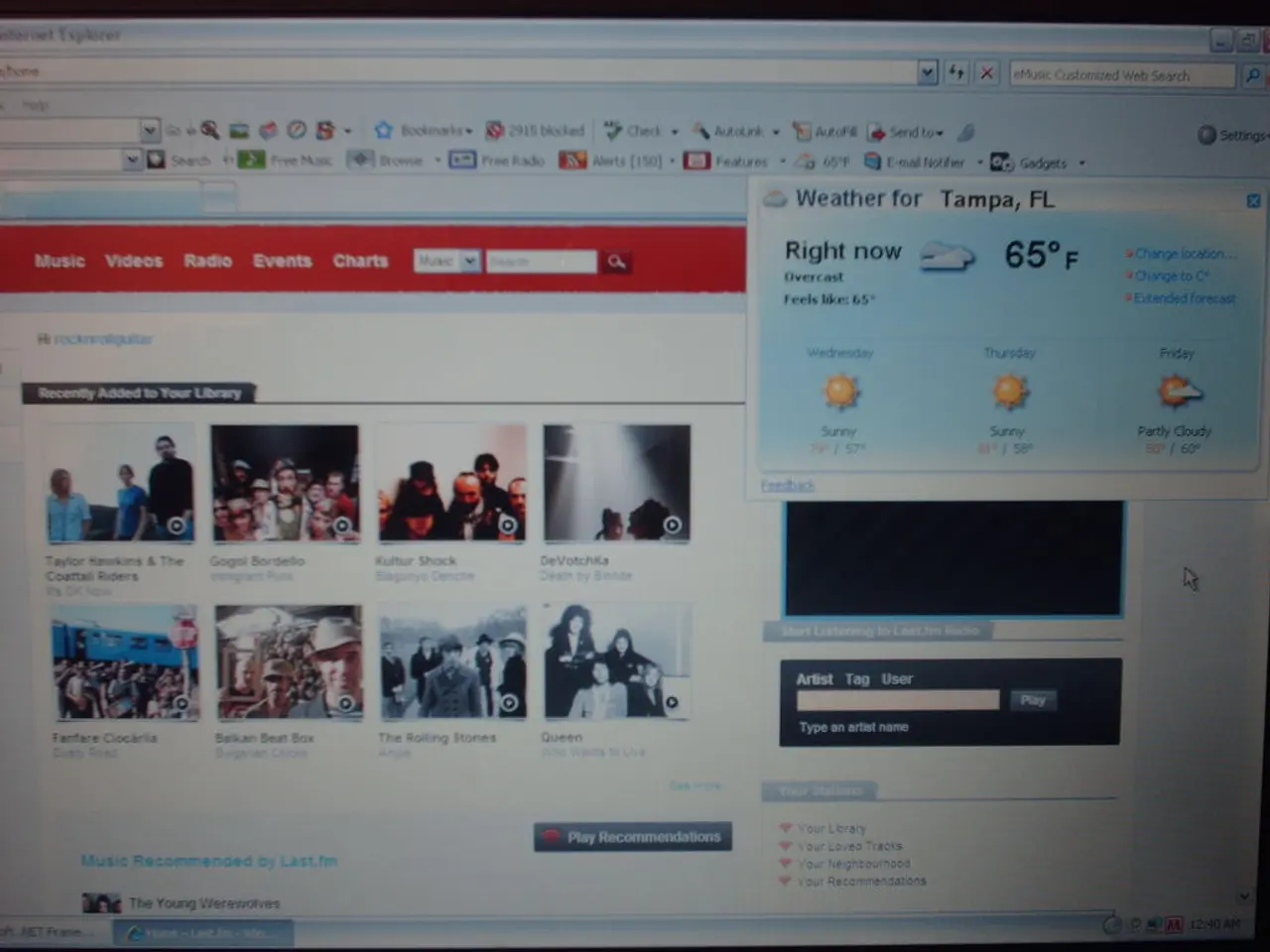Dropping Subscribers: MultiChoice Experiences 1.2 Million Users' Departure
MultiChoice Faces Challenges Amidst Shifting Video Entertainment Landscape
MultiChoice, South Africa's leading pay-TV provider, is confronting several significant challenges in the ever-evolving video entertainment industry.
The company has experienced a decline in subscribers, with its traditional pay-TV service, DStv, losing 1.2 million subscribers over the past year, leaving them with 14.5 million. This drop represents an 8% decrease in linear pay-TV subscribers, a consequence of weak consumer spending, increased competition, and macroeconomic chaos across sub-Saharan Africa [1].
Competition from streaming platforms, such as Netflix, has intensified, forcing MultiChoice to adapt its strategy towards streaming services like DStv Stream and Showmax. However, these platforms have yet to fully offset losses in the satellite subscriber base [1].
Piracy also poses a significant threat to MultiChoice's revenue, with illegal IPTV streaming, much of which originates offshore, being a major concern. In response, the company has shifted its anti-piracy efforts to focus on upstream operators and uses advanced monitoring to block pirated content, especially during high-profile events [3].
MultiChoice has responded to these challenges with several strategic moves. The company is heavily investing in growing its OTT services, as shown by accelerating revenue growth in DStv Internet, DStv Stream, and Showmax paying customers. This shift towards capturing digital audiences reflects a pivot towards adapting to changing consumer behaviors [1].
MultiChoice is also focusing on local content, with 82 original releases. The company is hoping that this focus will help differentiate it from competitors [1].
The pending takeover by Canal+, expected to be completed after ICASA approval, will inject substantial investment ($1.4 billion over three years) for local content production, skills development, and corporate social responsibility. This partnership obliges MultiChoice to maintain South African ownership rules, protect jobs, and promote Black-owned suppliers, changes that could stabilise and enhance the company’s competitive positioning [2][4].
However, MultiChoice's streaming arm is still bleeding cash, and the company suffered R5.2 billion in foreign exchange revenue losses due to currency depreciation. This, combined with the R800 million headline loss for the year ending March 31, compared to a R1.3 billion profit last year, indicates that the road to recovery may be long [1][2].
Despite these challenges, Showmax is gaining ground against global players like Netflix, with active paying users increasing by 44% [1]. The company continues to capitalise on exclusive content, particularly sports via SuperSport, which remains a core attraction differentiating MultiChoice from competitors [1].
In conclusion, MultiChoice is navigating a complex landscape marked by subscriber attrition due to economic pressures and streaming competition, compounded by piracy risks. The company's strategic response combines transforming its product offerings towards streaming, intensifying anti-piracy enforcement, and leveraging the Canal+ acquisition to boost investment in local content and broaden market reach. The deceleration in subscriber losses suggests these strategies may be beginning to stem the decline, though regulatory approvals and market conditions will influence their ultimate effectiveness [1][2][3][4].
- MultiChoice, in an attempt to counter the increasing competition from technology-driven streaming platforms like Netflix and adapt to the shifting business landscape in finance, has been expanding its streaming services like DStv Stream and Showmax.
- The financial strain on MultiChoice is evident, with significant losses in foreign exchange revenue due to currency depreciation and a headline loss for the year ending March 31, indicating the long road to recovery amidst these business challenges.




